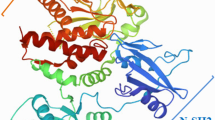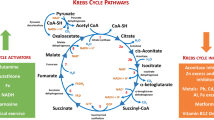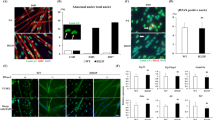Abstract
The human insulin-like growth factor II gene is regulated in a development-dependent manner and is not expressed in most adult tissues. However, high levels of insulin-like growth factor II mRNA are detected in many human tumors including rhabdomyosarcoma, an embryonal tumor of skeletal muscle origin. In this study, we demonstrate that the developmentally regulated transcription factor AP-2 is expressed at higher levels in human fetal skeletal muscle and rhabdomyosarcoma cells compared to human adult skeletal muscle. Endogenous insulin-like growth factor II mRNA derived from the P3 as well as transfected P3 promoter activity were modestly and consistently increased to the same extent following treatment of the rhabdomyosarcoma cell line RD with forskolin, a compound implicated in AP-2 transactivation. This effect of AP-2 on increased transcriptional activity was confirmed by nuclear run-on assays. Expression of AP-2B, a dominant-negative inhibitor of AP-2, suppressed the P3 promoter activity in AP-2 expressing RD cells. Furthermore, five AP-2 protected regions corresponding to six AP-2 specific binding sites were detected in the insulin-like growth factor II P3 promoter. These data together suggest that AP-2 may contribute to the high expression of IGF-II in rhabdomyosarcoma cells.
Similar content being viewed by others
Author information
Authors and Affiliations
Rights and permissions
About this article
Cite this article
Zhang, L., Zhan, S., Navid, F. et al. AP-2 may contribute to IGF-II overexpression in rhabdomyosarcoma. Oncogene 17, 1261–1270 (1998). https://doi.org/10.1038/sj.onc.1202050
Received:
Revised:
Accepted:
Published:
Issue Date:
DOI: https://doi.org/10.1038/sj.onc.1202050
- Springer Nature Limited
Keywords
This article is cited by
-
Development of IGF-IR inhibitors in pediatric sarcomas
Current Oncology Reports (2009)
-
Vascular endothelial growth factor acts in an autocrine manner in rhabdomyosarcoma cell lines and can be inhibited with all-trans-retinoic acid
Oncogene (2005)
-
The H19 endodermal enhancer is required for Igf2 activation and tumor formation in experimental liver carcinogenesis
Oncogene (2000)




